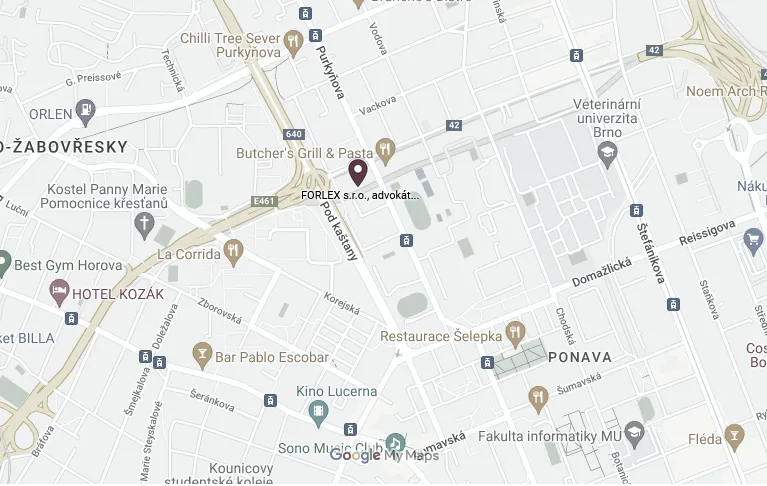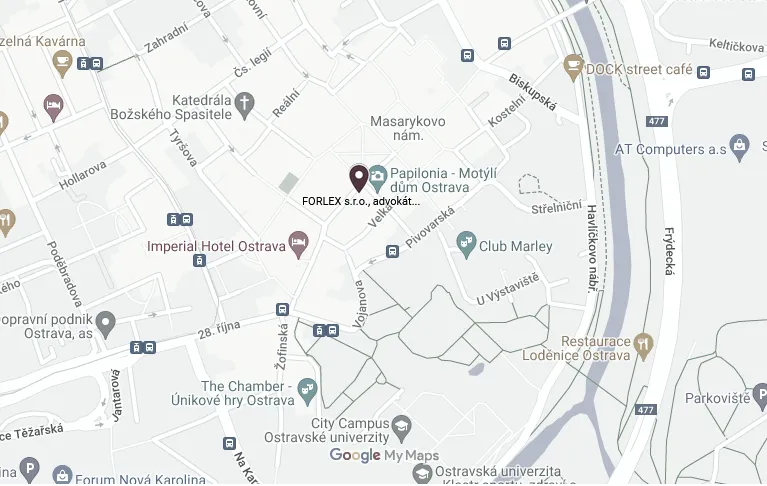NEWS
1/7/2020
OTHER LEGAL NEWS
The pre-emptive right of co-owners of real estate will be substantially reduced
On 1 July 2020, an amendment to the Civil Code will enter into force, on the basis of which, among other things, the rules of the statutory pre-emption right of co-owners of real estate will be changed again.
Under the current regulation, if a person transfers his co-ownership interest in real estate (whether for consideration or free of charge), the other co-owners have a pre-emptive right to the transferred interest, unless it is a transfer to a close person.
The “new” regulation restores the relationships of the co-owners in relation to the pre-emptive right to the legal situation that was effective by the end of the 2017. The statutory pre-emption right of the co-owners will thus be considerably reduced. In the event that the co-owner of the immovable property transfers (for consideration or free of charge) its interest in real estate, the other co-owners have the pre-emptive right. However, this pre-emption right will only last for six months from the date of establishment of the co-ownership (founded mainly as a result of inheritance), unless the co-owner transfers his share to another co-owner, his spouse, sibling or relative in a direct line and in this case the pre-emptive right of co-owners does not apply at all.
Until 30 June 2020, however, the co-owner of the real estate remains obliged to offer his interest in real estate to the other co-owners for redemption. If you are interested in buying or selling a property interest e.g. for the purposes of consolidating ownership rights to agricultural land, transferring interest in family property to a third party or for speculation (especially in more complex cases) we recommend that you wait at least until this July.
Amendment to the VAT Act
The government approved an amendment to the Value Added Tax Act, which will change the conditions for the delivery of consignments in cross-border trade from 1 January 2021. At present, small consignments are worth less than 22 euros originating from non-EU countries are exempt from VAT, whereas shipments from EU countries of any value are subject to VAT.
This inequality between suppliers from the EU and from third countries is addressed by the above-mentioned amendment by abolishing the VAT exemption for „small consignments“ worth less than 22 euros throughout the European Union.
Conversely, the administrative burden associated with the need to register for VAT and comply with the obligations in each Member State where the trader sells goods or provides his services will be reduced due to the extension of the special VAT scheme. Entrepreneurs will now be able to register on the online portal and file tax returns and pay VAT on transactions in other EU Member States, in addition, entrepreneurs carrying out cross-border online sales of goods or digital services up to 10,000 euros per year will be able to apply VAT rules applied in their home country.
New Act on real estate mediation
With effect from 3 March 2020, a new law on real estate mediation was adopted, the aim of which is to protect clients of real estate agencies, improve the quality of real estate services and at the same time bring this type of business closer to the conditions of other EU countries.
The activity of a real estate intermediary is newly included among tied trades, the operation of which is conditioned by the necessary qualifications, for the verification of which a publicly available list will be used by clients.
The real estate brokerage contract must be concluded in writing, the amount of the real estate broker's commission must be determined and it must be accompanied by an extract from the real estate cadastre to the real estate in question, which clearly reveals possible property restrictions or other defects related to real estate. There is also a maximum duration of 6 months for the exclusive mediation of the sale of real estate for cases where the interested party is a consumer.
Newly, the real estate broker must be insured for the entire period of the activity in the event of the obligation to compensate the client for the damage caused by the performance of the real estate mediation activity. The indemnity limit is set at least at the amount of CZK 1,750,000 per insured event and at least at the amount of CZK 3,500,000 for the case of concurrence of several insured events in one year, which, however, with regard to the current price of real estate, we consider quite sufficient.
We perceive this law as a step forward, however, the protection of clients from some unfair practices of real estate agencies could, in our opinion, have been established to a greater extent.
Upcoming amendment to the Energy Act, or stop energy junkies
The Ministry of Industry and Trade of the Czech Republic is preparing an amendment to the Energy Act, which should ensure greater protection of customers, thereby responding to the unfair commercial practices of some electricity and gas suppliers and intermediaries.
Intermediary activities in the energy sectors will now only be possible on the basis of an authorization granted by the Energy Regulatory Office.
The amendment strengthens the customer's rights, especially through the following proposed provisions:
- the customer's right to terminate the contract that was concluded remotely or outside the licensee's business premises at any time within 15 days of the commencement of the electricity or gas supply without sanction;
- after the conclusion of a fixed-term contract, in which it is agreed to extend the contract without the express consent of the customer, the customer is entitled to terminate the contract without penalty at any time up to the twentieth day before the expiry of the agreed duration of the contract. This provision responds to the often-unwanted automatic extension of the contract;
- if the customer's ownership or use right to the supply point has expired, the customer is entitled to terminate the contract without penalty with a notice period of fifteen days.
Authorization of the provider of the public communications network to enter foreign real estate
In accordance with the Electronic Communications Act, providers of the public communications network are entitled to use third-party real estate (eg for the purpose of carrying out repairs and maintenance of optical lines). Based on a recent decision of the building authority confirmed by the appellate office, it was confirmed in the representation of our client that the precondition for establishing and operating a public communications network on foreign land is primarily the conclusion of a contract with the owner of such land, thus ex lege rights during the operation of the public communications network by the operator. In the event that the establishment of this network cannot be ensured by contract, the institute of expropriation begins.
The owner or user of the property is obliged to allow the provider providing the public communications network, upon prior notice, which must be demonstrably made in good time, to enter, enter the property and cut and trim trees endangering the safe and reliable operation of communication lines. If the owner or user refuses access to the provider, it is possible to request compliance with this obligation in proceedings before the building authority. The owner or user of the property is thus, after prior notice, obliged to allow the entrepreneur providing the public communication network to enter the property to the extent necessary and to cut down and trim down the trees threatening the safe and reliable operation of the communication lines.
Legal services in CZ, SK and abroad
Contact

info@forlex.cz
+420 596 110 300
Ostrava
FORLEX s.r.o., attorneys-at-law
28. října 3159/29, 702 00 Ostrava
Brno
FORLEX s.r.o., attorneys-at-law
Jana Babáka 2733/11, Královo Pole, 612 00 Brno
Billing information
IČO: 04275705, DIČ: CZ 04275705
ČSOB
Account No. CZK – 321695472/0300
Account No. EUR – 333568649/0300
Registred in the Commercial Register maintained by the Regional Court in Ostrava, Section C, File 63028.
Consumer protection information
On 5 February 2016, the Czech Bar Association was authorized by the Ministry of Industry and Trade of the Czech Republic to deal with alternative consumer dispute resolutions in the field of disputes between a lawyer and a consumer arising from legal service agreements (under Act no. 634/1992 Sb., on consumer protection, as amended). The website of the designated body is www.cak.cz.



